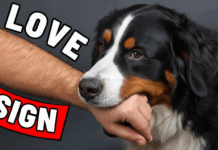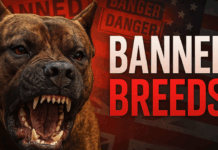Last Updated on July 25, 2024 by Dogs Vets
If you’re a French Bulldog owner, you’ve likely experienced the challenge of dealing with separation anxiety in your beloved pet. It’s a common issue, and one that can make life difficult for both you and your furry friend.
I’ve been there, spending two years helping my own Frenchie overcome extreme separation anxiety.
French Bulldogs are prone to this condition. They’re a breed that doesn’t do well alone. In fact, some can’t handle being without their owners for even a few moments.
Whether it’s a fear of being separated from their owner, loud noises, or traveling, anxiety can manifest in various forms in these adorable dogs.
In this article, I’ll share some of the strategies and resources that helped me and my dog conquer this issue. Together, we can help your Frenchie live a happier, less anxious life.
What Is Separation Anxiety?
Separation anxiety can be a tremendous challenge, particularly for breeds like the mini French Bulldog. If you’ve observed some unusual behavior in your Frenchie, especially when you’re about to step out, it’s essential to understand what’s going on.
Let’s delve deeper into separation anxiety. It’s qualitatively different from general anxiety, with distinct symptoms that crop up when your dog stays alone for a while. The degree of stress varies; some dogs manage relatively well while others may struggle significantly.
A mini French Bulldog often experiences a spike in stress and anxiety when separated from its owner. Given the clingy nature of this breed, this isn’t surprising. As a French Bulldog owner, you are considered their pack leader and your presence is paramount to their mental wellbeing.
This attachment, while endearing, can morph into tension, stress, and the primary concern of our discussion – separation anxiety. This condition isn’t exclusive to French Bulldogs, but due to their inherently social nature, they are particularly susceptible.
Recognizing and handling separation anxiety is no easy task. Remember, the goal isn’t just about making your pup manageable when alone; it’s to enhance their overall quality of life. Separate from their owner, your mini French Bulldog might start exhibiting unpleasant behavior as a coping mechanism.
It’s up to us as responsible owners to aid in managing their anxiety, giving them the tools they need to navigate their fear of being alone.
Are French Bulldogs Prone To Separation Anxiety?
Well, let’s put it this way. Many dog breeds experience separation anxiety when their owners are not around, and French Bulldogs are no different.
As someone who’s spent a lot of time with Frenchies, I can tell you that they’re highly susceptible to separation anxiety. You might’ve noticed your Frenchie going crazy as you’re getting ready to leave. Doesn’t seem like fun, does it?
Separation anxiety isn’t about disobedience at all, but it’s a serious behavioral issue. It’s concerned more with the emotional distress your dog feels when you’re not around. Don’t underestimate the severity of this.
If left unaddressed, such anxiety can lead your furry friend to develop destructive behavior, which isn’t any good.
Frenchie lovers should understand one thing – French Bulldogs are social beings.
Like other pack animals, Frenchies prefer company, especially that of their owners, rather than isolation. So naturally, when you separate them from their pack, which includes you in this case, they tend to feel lonesome and stressed.
Here’s some data for your understanding: While many French Bulldogs are prone to separation anxiety, not all show the symptoms.
The prevalence of potential anxiety varies from one Frenchie to another. It’s a common concern, but it doesn’t mean every Frenchie will experience it.
Recognizing whether your Frenchie has this anxiety, and learning to deal with it, is crucial for their overall well-being.
Separation Anxiety French Bulldog: Symptoms
Moving on, let’s dive more into the specifics. What signs should you look out for?
How do you know if it’s separation anxiety or just normal dog behavior? Well, the crux of the matter lies in a pattern of distress and destructive conduct when left alone.
You’ll find some Frenchies can’t stand being without their owners for even a few moments.
That’s how attached they are, and it’s simply adorable up to a certain extent. But when this attachment morphs into an inability to handle solitude, it can create an unhappy pup and a whole lot of stress for you.
Some key symptoms to keep an eye on: Is your Frenchie acting like an angel when you’re around but suddenly morphing into a four-legged wrecking ball the moment you step out the door? It could be separation anxiety.
Sure, there’s a chance your Frenchie might just be a bit naughty. But more often than not, the sudden turn to destructive behavior when left alone points to a deep-seated anxiety issue.
- Destructive Behavior: When left alone, a French Bulldog separation anxiety may result in chew on furniture, shoes, or other items in the house. This behavior is not out of mischief but rather a sign of stress and anxiety.
- Excessive Barking or Howling: If your French Bulldog barks, howls, or whines excessively when you’re not home, it could be a sign of separation anxiety. This vocalization is a way for them to express their distress.
- Pacing and Restlessness: An anxious dog may pace back and forth along a fence or in a room, or continually move around the house, unable to settle in one spot for long.
- Accidents Indoors: Even if well house-trained, a French Bulldog with separation anxiety might urinate or defecate in the house when left alone, due to stress.
- Escaping Behavior: Attempting to escape from the house or crate to reunite with their owner is another common sign. This can be dangerous as the dog might injure itself in the process.
- Excessive Salivation or Drooling: Some dogs might drool more than usual when feeling anxious.
- Changes in Eating Habits: Refusing to eat or loss of appetite can also be a symptom, especially if this behavior only occurs in the owner’s absence.
- Following the Owner Around: A French Bulldog may become overly attached, following their owner from room to room, and showing signs of distress when the owner is about to leave.
- Change in Sleep Patterns: Anxiety can disrupt normal sleep patterns, leading to restlessness or excessive sleeping.
- Self-Harm: In severe cases, a dog may lick or chew its own body excessively, leading to hair loss or injuries.
How To Stop Separation Anxiety In French Bulldogs?
Separation anxiety in French Bulldogs is a serious issue that needs to be addressed. Thanks to modern studies and animal behaviorists, I’ve got some tactics to discuss.
If your Frenchie shows signs of anxiety when you’re about to leave, these strategies could help.
Separation Anxiety Training by CSAT Professionals would utilize the strategies mentioned below and
tilor them to your specific needs
Counterconditioning
Counterconditioning, or desensitization, is a technique often used in treating separation anxiety.
This involves training your French Bulldog to associate you leaving with something positive, like receiving a special treat, or a favored toy. This shift in mindset can reduce their stress levels during departures.
Practice A Calm Routine
Too much excitement either when leaving or returning home can feed into your French Bulldog’s anxiety levels.
By adopting a calm routine, you can help your Frenchie become more accustomed to your departure and arrival, lessening their anxiety. Avoid excessive interaction, maintain a much as low-key attitude as possible.
Give It A Calming Object Or Product
To ease your dog’s anxiety, consider providing a comforting item. This could be anything from a preferred toy to specially designed products that emit calming pheromones or melodies. Remember, it’s about creating a safe space for them.
I found that special separation anxiety toys for French Bulldogs can make a miracle in solving separation anxiety issues.
Positive Reinforcement
Positive reinforcement can go a long way toward teaching your Frenchie coping strategies. Reward calm behavior with treats, praises, or pets, and calmly ignore their anxious behavior.
Give It A Safe And Comfortable Space
French Bulldogs, like all dogs, need their own space where they can feel safe and secure. Choose a place where your pet likes to relax or focus most of their activities.
Try Short Absences at First
Gradually acclimate your Frenchie to your absence. Start by leaving briefly and then gradually increase your time away. This method promotes gradual adaptation to solitude.
Burn Off Excess Energy
Regular exercise reduces anxiety and stress levels in dogs. Adequate physical activity will help your French Bulldog release pent-up energy, leading to less anxiety when you’re away.
Don’t Punish Its Behavior
Remember that anxiety is a reaction to fear or stress. Punishing your French Bulldog for behavior stemming from anxiety may increase their fear or stress levels, exacerbating the problem.
Use A Pet Sitter
Consider employing a pet sitter or a reputable dog daycare if the anxiety becomes too much. This can be great for socializing your Frenchie and for providing human contact when you can’t be there.
Invest In A Separation Anxiety Jacket Or Anxiety Toys
Thundershirts, anxiety wraps, or other similar products can apply gentle, constant pressure to your dog’s body offering a calming effect. Separation anxiety jackets for French Bulldogs are designed to calm your Frenchie’s mind and are effective.
It could take some time and patience to find the right solution for your pet.
Final Thoughts
Separation anxiety in French Bulldogs can have different manifestations. Sometimes, you find them to be stubborn listeners who only follow commands when it suits them. This might not necessarily be a sign of disrespect or lack of training.
It could be a result of the anxiety they are suffering from in your absence. Here, calm and assertive commands, consistency, and frequent practice can give impressive results.
Each Frenchie’s anxiety situation is unique and patience plays a key role in finding the solution that works for your furry friend. While it might be something as simple as a calming routine, it might also call for some assistance from a professional trainer or a specific product.
It’s clear that separation anxiety in French Bulldogs can manifest in many ways, like stubbornness, leash pulling, or destructive chewing. Recognizing these signs is the first step. After that, it’s all about finding the right strategy to soothe your pup’s anxiety.
Shock-absorbing leashes and safe chew toys can help, but remember, each dog’s situation is unique. Patience is key, as is reaching out for professional help when needed.
Dealing with your Frenchie’s separation anxiety might be challenging, but with the right approach, it’s definitely manageable. Your furry friend’s happiness is worth the effort!
Fact Check
We strive to provide the latest valuable information for pet lovers with accuracy and fairness. If you would like to add to this post or advertise with us, don’t hesitate to reach us. If you see something that doesn’t look right, contact us!























